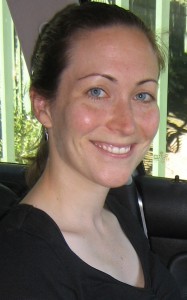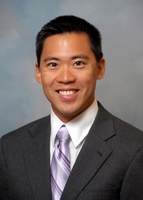By Kelly Cleary
Sometimes students talk to career counselors as if they were making a confession. We often hear “I don’t want to be a doctor (or lawyer)” in almost a whisper so their parents in Long Island or LA can’t hear them. But sometimes, instead of a whisper, it’s a confident voice accompanied by averted eyes, as if to say, “I know this is crazy but…,” coming from a student who has made up his or her mind, but isn’t sure how friends and family will take the decision. She wants to join the Peace Corps, he wants to write a screenplay, she wants to go to culinary school, or he wants to do conservation work in Alaska. In any case, I love meeting with these types of students because instead of committing to a future career they feel lukewarm about, almost guaranteeing themselves a future case of the Sunday evening blues, they’ve identified something they really care about and enjoy. The next step is simply (or not so simply) helping them find a way to make a living while pursuing their passion. Pursuing a career in the nonprofit sector can be one great way to pursue your passion while making a living.
Yes, you can support yourself and make a living while working for a nonprofit. It’s true salaries in nonprofits tend to be quite a bit lower than salaries in the for-profit and even government sectors, but once you’ve reassessed your budgetary needs (Netflix is probably cheaper than cable; cooking is healthier and cheaper than ordering out; having a roommate means more money in your pocket, etc.), you can quickly realize you can make ends meet. And often, once you’ve proved yourself as a competent professional in a nonprofit, especially if you work for an organization that offers tuition assistance for graduate school, your salary will increase. All the while you’ll be supporting a cause you really care about, working with people who care about the same issues, and usually having a pretty great work-life balance.
For more information about pursuing a nonprofit job, attend tomorrow’s workshop:
NONPROFIT CAREERS 101 workshop (Wednesday, November 17, 5:00-6:00pm, Civic House Living Room)
This event is designed to help you better understand the non-profit sector and assist you in navigating the job search in the public interest. The session will demystify some of the myths about careers in the public interest as well as help you better determine which job opportunities to pursue, and how best to go about attaining them. The session will also introduce you to resources both on campus and the web. (CO-SPONSORED BY CAREER SERVICES & CIVIC HOUSE)
For additional information about nonprofit careers read the The Idealist Guide to Nonprofit Careers for First-time Job Seekers or The Idealist Guide to Nonprofit Careers for Sector Switchers. Also, keep an eye out for several nonprofit-related career fairs co-sponsored by Career Services in Spring 2011 including the Not-For-Profit Philadelphia Fair, the Not-For-Profit & Public Service Fair at Columbia, and the Philadelphia Nonprofit Fair co-sponsored by Idealist.org.







